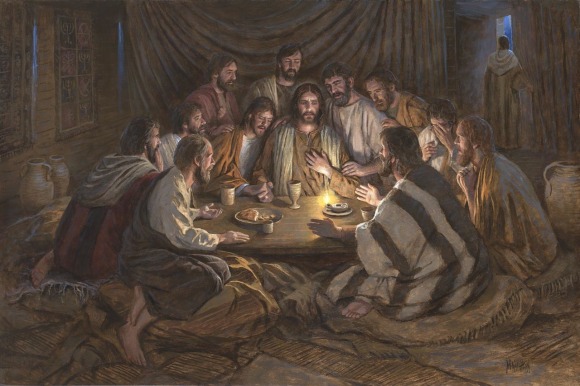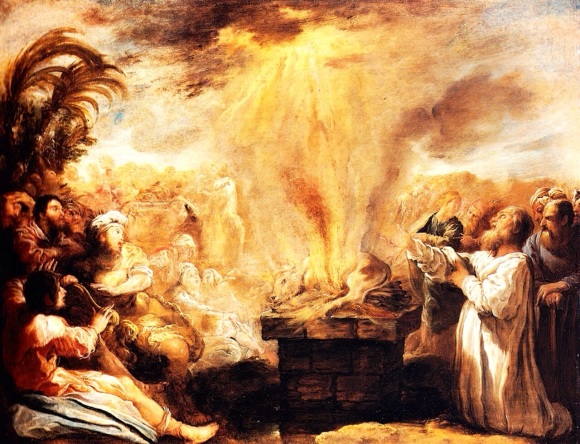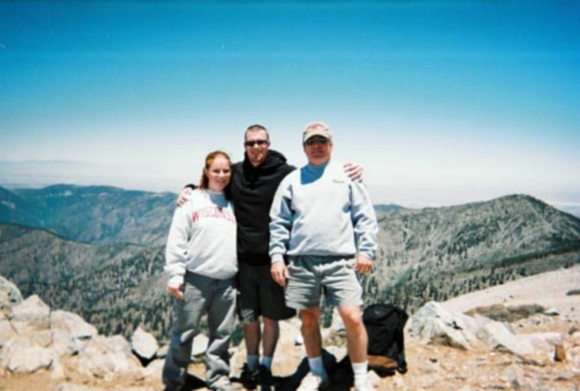
We had communion in church on Sunday. It is always such a blessed event. It gives us a chance to reflect on our spiritual condition. I’ll always remember my first communion experience after being born again. After receiving the elements, I sat there in the pew reflecting on my sinfulness and rebellion and on Christ’s amazing sacrifice for my sin. I was weeping and my hands were shaking. As I opened my eyes and looked at the little cup in my hand, I saw that the juice had spilled out and was all over my hand. At that moment, the Lord reminded me that His blood was on my hands. I had received the cup as a child growing up in the Methodist church, but back then it was just a ritual without meaning to me. After this first born again communion, I knew I would never be the same. Whenever I take communion now, I reminded of that first real time for me.
This past Sunday, the preacher read from 1 Corinthians 11:24 and 25 as is customary, reminding us that Christ’s body was broken for us and His blood was shed for the remission of our sins. As we were taking communion, I was thinking about what that first communion meal must have been like for Christ’s disciples. As post-canon Christians, we have the advantage of having the Word of God including the New Testament that explains Christ’s death, burial and resurrection in the context of the gospel. We understand what the crucifixion and resurrection of Jesus accomplished for our salvation and the establishment of His Kingdom. The first disciples had none of that. All that they had were Hebrew traditions and the Old Testament which were a shadow of the good things to come. They had the teachings of their master, but the gospels are replete with accounts of how the disciples did not understand completely the things that Jesus taught them. We know from the gospel accounts that none of them understood that Jesus would rise from the dead. None of them understood why His death was necessary. None of them understood that the earthly Kingdom that Jesus spoke of was not for their time. They were all expecting Jesus to evict the Romans and re-establish an independent Israel. Their earthly nation was the only “Kingdom of God” that they knew. They believed that Jesus was God in the flesh, but they really did not understand His mission until after the resurrection. So, this first communion initiated by Jesus must have sparked many questions in their mind.
To begin to understand how the disciples may have thought about this event, we have to realize that this took place during a traditional Passover meal. The Passover observed in the first century was different than the modern Jewish holiday. It was more like the Passover celebrated by Moses and the Hebrews before the exodus. In the first century, they still had a temple, a priesthood and observed sacrifices, unlike modern Jews. During Jesus’ three years of ministry, He most likely observed the Passover with His disciples at least twice. But this time, it was different. Jesus broke tradition at His Last Supper. The unleavened bread that Jesus broke had always been a reminder to the Hebrews of the manna that God provided in the wilderness. During the Passover meal it was intended to remind them of God’s miraculous provision and care for them in providing for their physical needs. He kept them alive! Life literally came from heaven. When Jesus said, “This is my body that is broken for you. Take and eat,” it must have stirred a memory for the disciples from an earlier time in Jesus’ ministry. It was not necessarily a good memory. The event is recorded in the sixth chapter of John’s gospel. It occurs the day after Jesus had fed 5,000 men plus women and children. This huge crowd followed Him to the other side of the sea at Capernaum. His ministry was growing exponentially. It was flourishing. He was known throughout Judea and the Decapolis region. And then, He tells the people that He is the bread that came down from heaven. People began to complain. Jesus responds, “I am the Living Bread which came down from Heaven. If anyone eats of this Bread, he shall live forever. And truly the bread that I will give is My flesh, which I will give for the life of the world.” (John 6:51) He told them that they must eat His flesh and drink His blood! John records, interestingly in verse 6:66, that most of the crowd left. It was bad marketing, Jesus. The Jews, who wouldn’t even touch a dead body, probably thought to themselves, “This man is a pagan. He wants us to be cannibals. The Pharisees are right about this man.” He asked the disciples if they wanted to leave. Peter responded, “where else would we go? You are the Christ, the Son of the Living God.” Peter and the disciples most likely did not understand what Jesus was saying, but they believed He was God in the flesh and they accepted Him by faith, even though they did not understand. What great faith! Oh, that we could have that sort of faith. So, Jesus was repeating at this Last Supper what He had earlier taught in Capernaum where He was soundly rejected. It certainly must have caused the disciples to think about Jesus being their source of life like the manna from heaven in the wilderness.
There were four ceremonial cups of wine served during the Passover meal intended to remind the participants of four promises that the Lord had made to the Israelites prior to the exodus from Egypt. The first cup was called the cup of sanctification and was to remind them of God’s promise to set them apart from the Egyptians and the second was the cup of thanksgiving to remind them that the Lord rescued them from bondage. “Therefore say to the sons of Israel, I am Jehovah, and I will bring you out from under the burdens of the Egyptians, and I will rescue you out of their bondage. And I will redeem you with a stretched-out arm, and with great judgments. And I will take you to Me for a people, and I will be to you a God. And you shall know that I am Jehovah your God, who brings you out from under the burdens of the Egyptians.”(Exo 6:6-7) The third cup was the cup of redemption intended to remind them of God’s promise to redeem them. This is the cup that Jesus spoke of as representing His blood that purchases our redemption. The fourth cup was known as the cup of completion and was not served until the end of the meal. Jesus identified His sacrificial blood with our redemption, but not with the cup of completion. His ministry is not yet finished. This reminds us that He is coming again. His Kingdom is here and not yet. There is work that remains before the Kingdom comes in its fullness. In the interim, let us serve Him with faith like His first disciples. There are things that we may not understand when we see evil and suffering, but let us believe in Christ’s divinity and goodness. In this age, we don’t have all of the answers, but we can trust in the Lord like His first disciples.


 It is an act of love to confront in love. “You shall not hate your brother in your heart: you shall rebuke your neighbor, and not bear with sin because of him.” Lev. 19:17
It is an act of love to confront in love. “You shall not hate your brother in your heart: you shall rebuke your neighbor, and not bear with sin because of him.” Lev. 19:17





